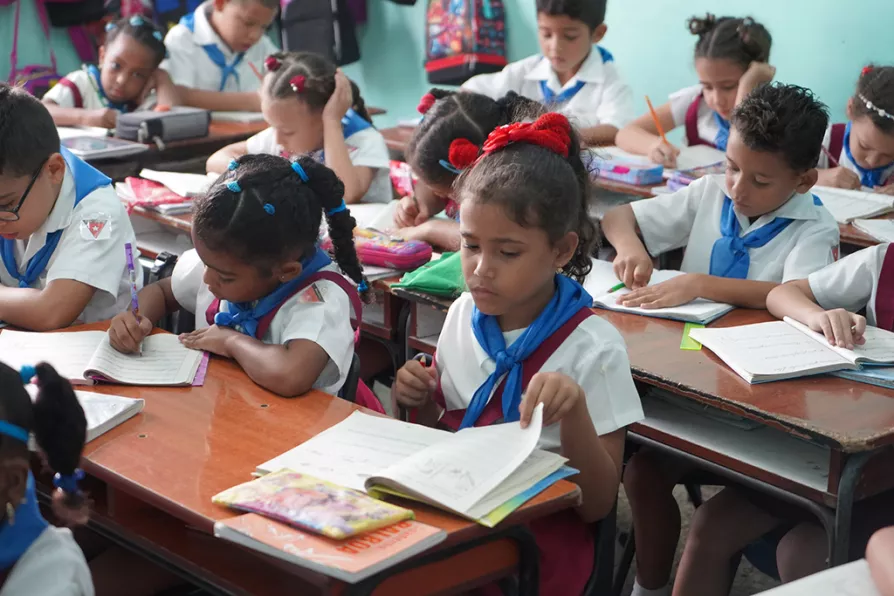The newly elected general secretary of the Aslef train drivers’ union speaks to Ben Chacko about union wins, a welcome shift in approach to the rail sector and what still needs to be done

 Cuban schoolchildren
Cuban schoolchildren
ONE OF the first things to strike me, on my first ever visit to a Cuban secondary school, was the level of engagement of the young people.
I was not the only person to pick up on this. On that delegation (in 2016), we had two teenagers and their immediate reaction was the same.
Discussing the visit 15 minutes after it finished, they both commented on exactly the same phenomenon.

In the centenary year of Fidel Castro, Cuba faces ferocious aggression from the United States — but we will not kneel, vows FIDEL CASTRO SMIRNOV

A teaching delegation to Cuba offered IAN DUCKETT a powerful glimpse into a schooling system defined by care, creativity and the legacy of the island’s remarkable 1961 literacy campaign

During visits to Cheney School and Oxford Brookes University, Ismara Mercedes Vargas Walter highlighted how Cuba devotes half its budget to education, health and social security despite the US blockade, reports ROGER McKENZIE

The money tap to anti-Cuban agitators will never be shut off under Trump









